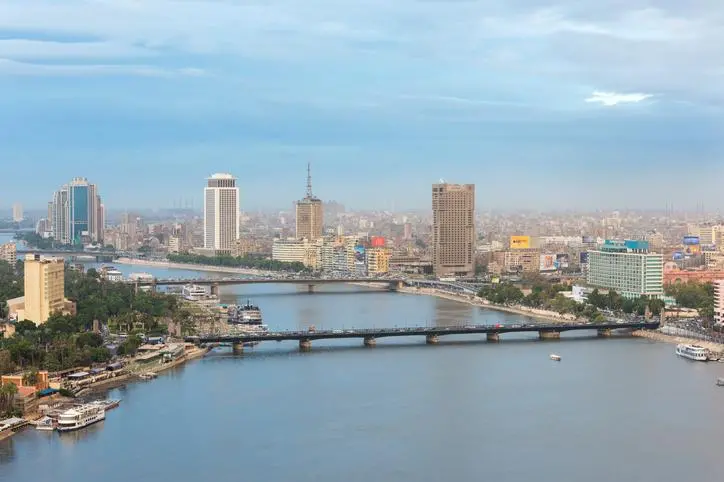PHOTO
Egyptian real estate developers and stakeholders are projecting a spike in prices during 2021.
These rises are due to several factors, namely increases in raw material costs, such as steel and cement, as well as the slash in interest rates, besides client reluctance to invest in property.
Mostafa El Gallad, Member of the Real Estate Development Chamber, said that Egypt’s real estate market will see a strong recovery with the beginning of the New Year. It comes largely as a result of the country’s stabile economic conditions, and the absorption of the negative effects resulting from the novel coronavirus (COVID-19) pandemic.
El Gallad forecasts that property price increases will occur due to the increase in raw material prices and construction costs. These increases will appear in conjunction with a market rebound, and the return of real demand for property during the coming period.
The recent period has experienced a significant decline in interest rates on investment certificates in banks, as well as the fluctuation of gold prices. This has ensured that many potential buyers are, once again, reconsidering a safe investment haven, he noted, adding that gold and property are the safest savings containers in times of crisis.
El Gallad said that buyers choose to purchase property to secure their savings, and to reap the benefits particularly following the slash of interest rates. Additionally, property in Egypt achieves an annual increase, which can reach 25% year-on-year (y-o-y), in addition to the possibility of renting with a distinguished monthly return.
Karim El Reedy, CEO of Reedy Group, expects an increase in real estate prices ranging between 8% to 10% in the current year.
He added that the expected price hikes have been driven by the surge in prices of construction materials, foremost of which are steel and cement.
El Reedy noted that market data indicates the continued rebound in sales, which increased significantly in the third and last quarters (Q3 and Q4) of 2020. Sales are also expected to increase in the coming period, coinciding with the cuts in interest rates at banks and deferred sales.
He disclosed that real estate remains the best investment, as it has been able to withstand and overcome the COVID-19 crisis and its repercussions on the economy in general.
“Strength of competition between developers and the multiplicity of projects and payment systems ensured the client had sufficient experience to choose and compare the quality of the project in terms of location, design, delivery and prices,” he saod.
Hany Al-Bandary, Chairperson of Sorouh Developments, proposed that 2021 will see greater stability and growth in Egypt’s real estate market.
This will come with a surge in project sales rates, especially in the New Administrative Capital (NAC), particularly as construction work on the government district at the national project is approaching completion.
Al-Bandary anticipates an increase of 10% to 15% in property prices, due to the expected rates of demand to compensate for the purchase decisions postponed from last year.
He noted that the current period is the ideal time to make a purchase decision, especially for those looking into real investment opportunities.
Al-Bandary pointed out that past experience confirms, beyond doubt, that real estate investment was and will remain the most stable and profitable one.
For his part, Ahmed Al Shennawy, Chairperson and Managing Director at ADVA Developments and member of Construction and Building Committee at the Egyptian Businessmen Association (EBA), said that the local real estate sector is the winning horse in 2021.
He added that it is qualified to lead the process of economic growth and overcome various challenges in the coming period.
Al Shennawy expects for a significant recovery to take place in the domestic real estate market, and projects a 15%-20% upsurge in prices during 2021.
Additionally, Egypt’s real estate sector will continue to achieve growth rates this year, as it will remain a safe haven for investment due to its ability to absorb shocks. It is also one of the strongest economic sectors contributing 33% towards the country’s GDP, as well as serving more than 100 trades and industry.
“Although the real estate sector is currently experiencing a slow down, it is the most stable market compared to the gold and currency markets, which have experienced many fluctuations,” Al Shennawy said, “Moreover, slashing interest rates on deposits in banks and the National Bank of Egypt (NBE) and Banque Misr abandoning their certificates, are considered in favour of the real estate sector.”
Mohammad Degheady, RE/MAX Al Mohager franchise owner, said that Egypt’s real estate market is expected to recover by 70% during 2021.
This recovery, which he expects to take place during the current and coming periods, comes despite the sector having faced several challenges due to the repercussions of the global health crisis.
Degheady noted his optimism for the real estate sector in the current year, thanks to the Egyptian Government’s expected move to the NAC in June 2021.
Besides this, this year saw the commencement of handing over projects that were launched in 2016, which is estimated at thousands of housing units. This has led to enhancing customer confidence in the Egyptian real estate market.
He added that the East Cairo region and its developments will be revitalised by the move to the NAC and the increased human presence at the national project. This includes a revitalisation of New Cairo, Mostakbal City, Badr City and all neighbouring cities, Degheady said.
© 2021 Daily News Egypt. Provided by SyndiGate Media Inc. (Syndigate.info).





















